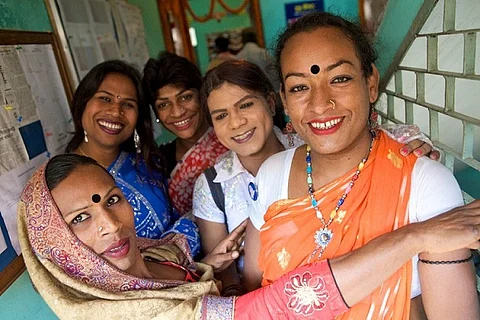

The Madras High Court on Tuesday directed the Tamil Nadu government to build toilets and bathrooms for transgender persons in Chennai, after carrying out a survey on the facilities available for them.
The debate over toilets for the transgender community has been raging in the US for sometime now, where several governments have refused to allow trans persons to use the bathroom of their choice. While this has led to several debates over rights of transgender persons, in India, this is perhaps the first time that a court has spoken on the issue.
But are separate public toilets the answer? The transgender community in Chennai is divided over whether the move to build toilets would be beneficial or regressive.
While the court has ordered that toilets and bathrooms be built in areas where there are a large number of transgender persons, Kalki Subramanian, a leading voice in the community, believes the efforts would, in fact, increase discrimination against trans persons.
“We have been using women’s toilets and a separate toilet is something I do not agree with. It excludes us. The existing infrastructure in schools and railways stations needs to be inclusive, trans men should be able to use the men’s toilet and trans women should be able to use women’s toilets,” argues Kalki Subramanian, Founder of Sahodari Foundation, an NGO which works for the welfare of transgender people.
Batting for inclusion rather than exclusion, she says, “The High Court should make sure that existing toilets are used by transgender persons. That’s what inclusiveness is. We do not need a separate toilet.”
But Kalki admits that trans women like her do encounter discrimination when they use women’s washrooms. “When my friends and I go to toilets in railway stations or airports, sometimes, women are trans phobic, they start walking fast or stare at us. Otherwise, I have never seen people harassing transgender persons. People’s mindset needs to be changed instead of building separate toilets,” she observes.
Transgender activist Rose Venkatesan believes the court’s directive will further complicate the matter. While advocating for unisex restrooms, she, however, wonders if there will be specific toilets for trans men and trans women.
Explaining the reason behind the demand for toilets for transgender persons, Sankari, the founder of Nirangal, an NGO working for the rights and welfare of trans persons says, “We have been asking for a toilet for the transgender community for quite some time. We have been using the ladies’ toilet and have not faced much problem. But transgender men are uncomfortable using the men’s toilet due to their attire, and they are scared that they will face harassment or sexual abuse if they use those toilets. Trans men face more problems than trans women.”
Like Rose, Sankari believes the solution lies in building unisex toilets that can be used by everyone. She, however, adds, “The toilets need to have proper doors and individual cabins for a person.”
Grace Banu, a final year engineering student and a trans women, believes the state government should be investing in education and employment opportunities for the community rather than building toilets.
She, however, notes that having separate bathrooms for school children below the age of 18 years is required. “We call them gender non-conforming children. If a child studies in a school and uses the boys’ washroom, everyone will peep into the bathroom and the child might leave the school because of this. But, otherwise, it is our personal decision what toilet to use,” Grace points out.
She, however, observes that society has become more accepting of the transgender community and the court’s order will lead to exclusion of trans persons.
“Earlier, when I used to use the women’s washroom, women used to run out of the bathroom. But now, they are accepting us. So why are they are talking about separation?” she asks